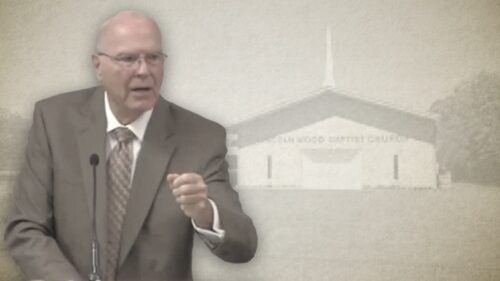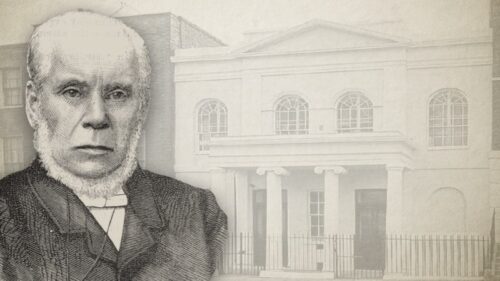-
Exercising Ourselves In Godliness, Doctrine And Discernment
FOR A COMPLETE ORDER OF WORSHIP, INCLUDING BIBLE READING, HYMNS AND SERMON...
-
Learning How To Possess Ourselves In Sanctification And Honour
FOR A COMPLETE ORDER OF WORSHIP, INCLUDING BIBLE READING, HYMNS AND SERMON...
-
My Response To Josh Buice’s Assault On Hyper-Calvinists
Josh Buice, pastor of Pray’s Mill Baptist Church (Atlanta, Georgia), serves as Assistant Professor of Preaching at Grace Bible Theological Seminary and is the founder and president of G3 (Gospel—Grace—Glory) Ministries. On November 22, 2016, he published a column entitled “Calvinism Is Not Hyper-Calvinism” to “Delivered By Grace”. It is to this article I wish to respond. He begins, “Last week, I was interviewed by Chris Arnzen on his radio show, Iron Sharpens Iron, on the subject of hyper-Calvinism. It caused me to think about this subject and the importance of using vocabulary properly. As the father of a type 1 diabetic, I spend much of my time explaining to people in random conversations that type 1 diabetes (T1D) is not the same thing as…
-
Vital Instructions For The Lord’s People Desiring To Live Godly In Christ Jesus
FOR A COMPLETE ORDER OF WORSHIP, INCLUDING BIBLE READING, HYMNS AND SERMON...
-
Instructions And Encouragements For The Downtrodden Saints Of God
FOR A COMPLETE ORDER OF WORSHIP, INCLUDING BIBLE READING, HYMNS AND SERMON...
-
Covenant Theology And The Particular Baptists
The Reformed Baptist denomination, a section of which has amped up its claims to be the modern day representatives of the English Particular Baptists (PB's), subscribe to a seventeenth century covenantal framework reflective of the Westminster Confession and that of Presbyterianism. In their view, (1) the covenant of redemption is relegated to the backdrop of an ‘eternity past’ with (2) a conditional covenant of works God made with Adam before the Fall (requiring of him perfect obedience to the heart-law) and (3) a conditional covenant of grace God made (or promised to make) with sinners after the Fall (requiring of them saving faith in Christ). Because they have adopted the 1689 Baptist Confession as their denominational statement of faith, they believe this entitles them to…








